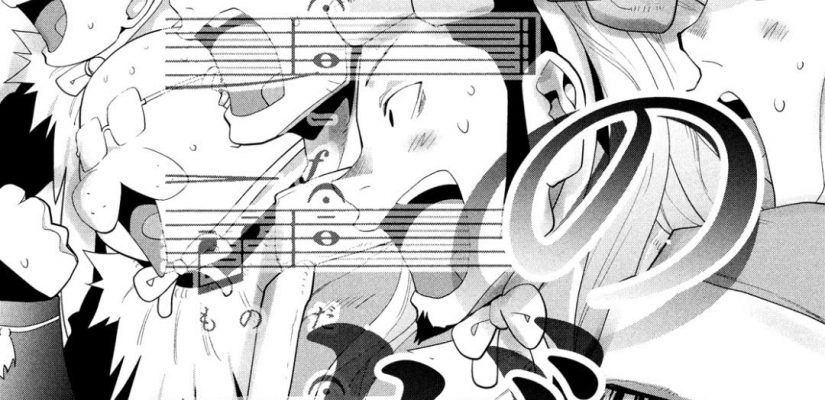
Summary
The Christmas-themed concert at Kousei’s orphanage continues, with the two sides (Christmas crew vs. Namahage Tsuyamers) joining together to sing a couple of songs as one. Kozue (still dressed as God) announces them as the Hashimoto High Chorus Appreciation Society, or “Hashi-kou Ensemble” for short.
The kids in the audience enjoy their performance, while Rikurou (the delinquent kid) is especially surprised by Kousei’s impressive singing. The orphanage’s assistant director thinks back to when a young Kousei first listened to a chorus concert himself. Later, Kousei has a heart-to-heart with Rikurou, where he talks about his dream: to buy a relatively inexpensive plot of land in a rural area, and use the architecture skills he’s learning in high school to build a house of his own where he can invite people over to listen to music.
During the concert, Jin notices Akira’s continued improvement in his singing—even in relatively higher notes, as opposed to the low notes that are Akira’s especially. Afterward, Akira casually mentions wanting to study music, which takes Jin by surprise. The caption at the end wonders how Jin will handle Akira potentially doing what Jin felt he never could.
They Said the Thing

This is the first time that the title of the series is (more or less) mentioned by the characters themselves, and it feels like a real milestone. What I think about is the sheer size of the group at this point, going from just Akira and Jin to around a dozen members. They’re on the verge of transitioning from appreciation society to full-fledged club, and I get a real sense of growth looking back at what’s transpired.
At this point, there’s only one girl among the actual singers, and I see that changing as the story progresses.
A Dream of a Home

Kousei is a character with a lot of layers, and I really love the reveal as to what he’s been working towards all this time. It’s strong and sweet, and encapsulates both the pain and healing that Kousei has been through.
There’s potentially a conversation about toxic masculinity to be had here, though I don’t know if it’s necessarily limited to perceptions of manhood. What I do see is Rikurou’s previous anger towards Kousei for doing something decidedly uncool and unmanly in his eyes, and then how Kousei manages to change Rikurou’s mind about everything. Kousei’s masculinity is complex, and even though he’s quick to get into a fight, he’s also kind and caring in his own way, and even a bit vulnerable—like his bashfulness over Shion. During his talk with Rikurou, asks if Shion is his girlfriend, which Kousei strongly denies. We know, though, that he’s held back by the belief that he’s from a world too different from hers.
Songs
“My Neighbor Totoro” from the Studio Ghibli film
“Let It Go” (Japanese) from Frozen
“Niji” (“Rainbow”) from “Itsu kara No ni Tatsute” (“Standing in the Field, Lost in Time”)
“Kamome” composed by Kinoshita Makiko
As always, I have an ever-growing Youtube playlist of most of the songs featured in Hashikko Ensemble.
Final Thoughts
This was a good spotlight on Kousei, though I think the manga’s going to focus on other characters after this.
The series keeps building to some kind of confrontation between Akira and Jin, and I have to wonder when things will come to a head.








